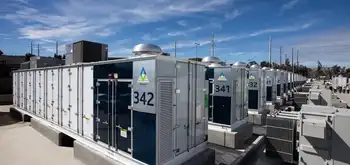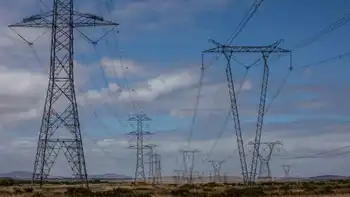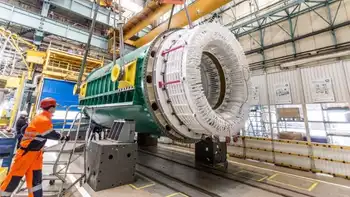NECA-IBEW invest in turbine training center
OMAHA, NEBRASKA - The United States Midwest region is one of the hottest regions in the United States for renewable energy development, with more than 30 gigawatts (GW) of renewable energy projects under development.
The overwhelming majority of these projects — about 27 GW, or 90% — are windfarm projects.
It's important to have qualified and reputable contractors lined up to implement wind tower construction projects. That's where NECA-IBEW comes in. They have invested in training programs to improve the quality of service and jobsite safety for their journeyman and apprentice electricians, with the purpose of saving owners and contractors time and money.
In Omaha, Nebraska, the NECA-IBEW team recently opened an Electrical Training Center, which offers a course dedicated to wind tower construction. A new wind turbine training curriculum features a training silo designed to simulate the working conditions of a wind turbine for IBEW electricians.
"What the union represents is quality and workmanship. We have the best program in the world. We have a five-year training program that is second to none," said Brian Sullivan, executive director of NECA Omaha Chapter on a recent ElectricTV.net (a joint program between NECA and the IBEW) video webcast.
The National Electrical Contractors Association, or NECA, was founded in 1901 and seeks to serve the management interests of electrical contractors in the United States. NECA boasts 119 chapters in all 50 states, four regional offices, and a home office in Bethesda, Maryland. NECA maintains its leadership role in the electrical industry through labor relations, training, education, advocacy and research.
The International Brotherhood of Electrical Workers, or IBEW, was founded in 1891 as a means for electrical workers to come together with one voice. Since that time, the IBEW has grown to more than 750,000 members throughout the U.S. and Canada.
Related News

Some in Tennessee could be without power for weeks after strong storms hit
NASHVILLE - Some middle Tennessee residents could be without electricity for up to two weeks after strong thunderstorms swept through the area Sunday, knocking out power for more than 100,000 customers.
"Straight line winds as high as 60-80 miles per hour knocked down trees, power lines and power polls, interrupting power to 130,000 of our 400,000+ customers," Nashville Electric said in a statement Monday. The utility said the outage was one of the largest on record.
"Restoration times will depend on individual circumstances. In some cases, power could be out for a week or two" as challenges related to coronavirus complicated crews'…




